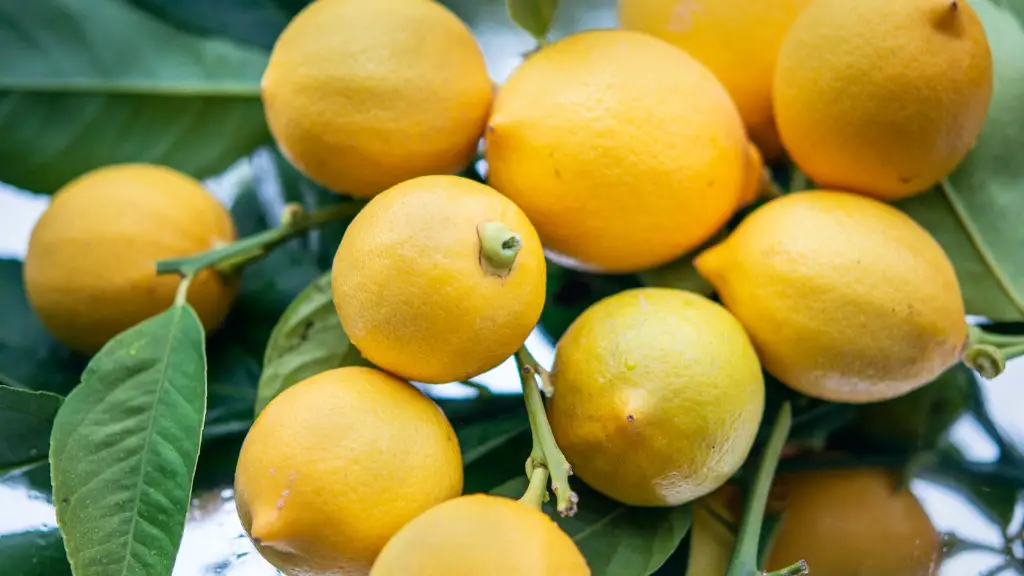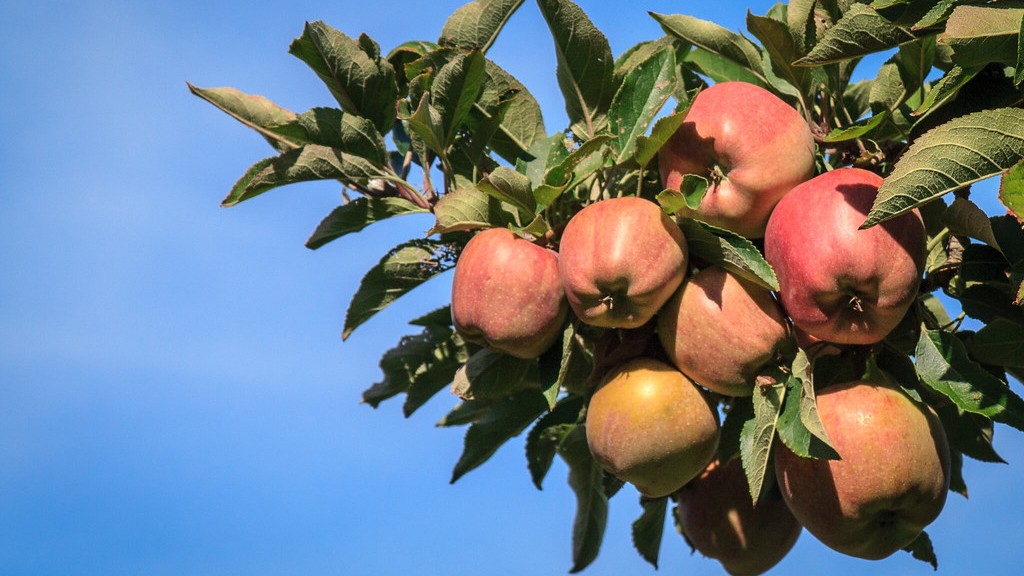The acidic tang of a lemon’s flesh is welcome in many dishes and it is a popular ingredient in many cuisines around the world. But what causes lemons to fall off trees? It turns out, there are several causes that could lead to the premature defoliation of lemons.
Firstly, lemons shed their fruits due to a process known as abscission. This process can happen at any stage of the fruit’s development, including the flowering stage or even after the fruit has become ripe. Lemon trees typically abscise their fruits due to sterility or nutrient deficiencies.
Another cause of lemon defoliation is environmental stress, including high wind speeds and drastic changes in temperature. High winds can cause the fruit to be blown off, while sudden temperature changes can cause stress on the tree, leading to premature defoliation.
Biotic threats, such as diseases, pests, and animals, can also cause lemon trees to shed their fruits prematurely. Plant diseases, such as dieback, can weaken the tree and cause premature defoliation. Additionally, pests, such as mites, can attack the trees, preventing the formation of fruits. Animals, including birds, mammals, and even humans, can also eat or pluck off ripe fruits.
In some cases, lemon trees can also shed their fruits due to poor pruning practices. Overpruning or improper pruning of lemon trees can lead to excessive fruit shedding. Therefore, proper pruning techniques should be employed when caring for lemon trees to ensure that fruits do not prematurely drop off.
Nutritional Deficiencies
A lemon tree can experience nutritional deficiencies that can lead to premature fruit shedding. Deficiencies in nitrogen, potassium, and phosphorus can cause the leaves to turn yellow and drop prematurely. Iron deficiency can also cause a yellowing of the leaves, which can result in the lemons being shed prematurely.
The lack of other micronutrients such as sulfur and magnesium can also cause the fruits of the lemon tree to fall off before they’re fully mature. To prevent nutritional deficiencies, it is important to maintain a healthy soil environment with plenty of nutrients, as well as to regularly fertilize the lemon tree.
Improper Watering
Aside from proper fertilizing, proper watering is also essential for healthy lemon tree growth. If the lemon tree is over watered or under watered, it can cause the leaves to prematurely yellow and drop. For optimal growth, lemon trees should be watered deeply and regularly.
Lack of water can cause the fruits to wilt and eventually drop off the tree, while too much water can also lead to premature defoliation. Too much water can cause the fruit to swell and split, causing them to drop off the tree. It is important to ensure that the lemon tree is being watered properly in order to avoid premature fruit shedding.
Excessive Heat
Excessive heat can cause premature fruit shedding in lemon trees. If temperatures exceed 29-32°C for extended periods of time, or if nighttime temperatures remain high, the lemons are more likely to drop off the tree prematurely.
For best results, it is important to provide the tree with shade and to keep the temperature at suitable levels. Additionally, it is important to ensure that the lemon tree is receiving adequate water during periods of extreme heat, as this can help prevent premature shedding of the fruits.
Incorrect Planting
Another cause of premature lemon fruit falling off is incorrect planting. If the lemon tree is planted at the wrong depth, it can cause the fruits to prematurely fall off the tree. When planting a lemon tree, it is important to ensure that the proper depth is achieved.
Additionally, it is important to ensure that there is adequate spacing between the lemon tree and surrounding plants and buildings, as this can also cause excessive heat, wind, and/or light, leading to premature fruit shedding.
Genetic Factors
Sometimes, premature fruit shedding can be caused by genetic factors, such as a naturally short lifespan of the tree. In some cases, the lemon tree will shed its fruits prematurely because of its limited lifespan. To prevent this, it is important to choose lemon trees with a longer lifespan, as this can help with fruit retention.
It is also important to note that certain types of lemon varieties are more prone to premature fruit shedding than others. To avoid this, it is important to choose lemon varieties that are known to be resistant to premature shedding.
Conclusion
In conclusion, while there are many causes of premature lemon fruit shedding, proper care can help prevent it. It is important to ensure that the tree has the correct amount of nutrients, water, and space to prevent premature fruit shedding. By taking the proper precautions, it is possible to ensure that the lemon tree is healthy and productive.



